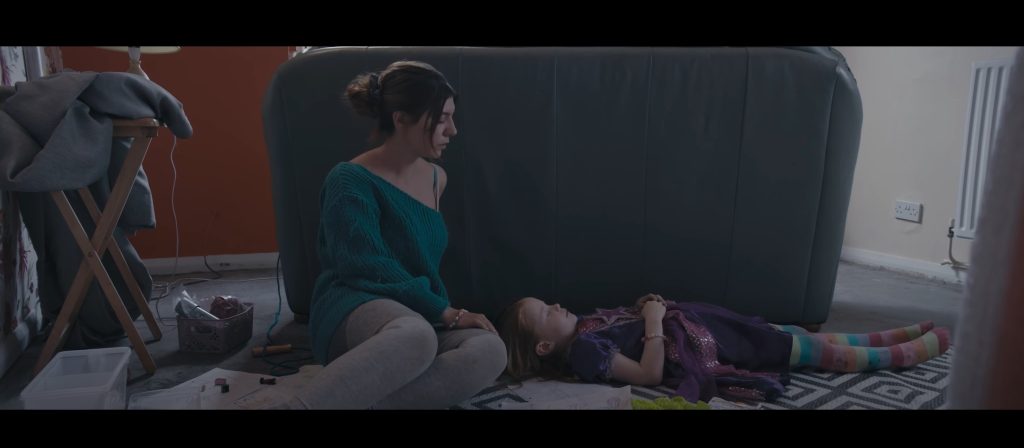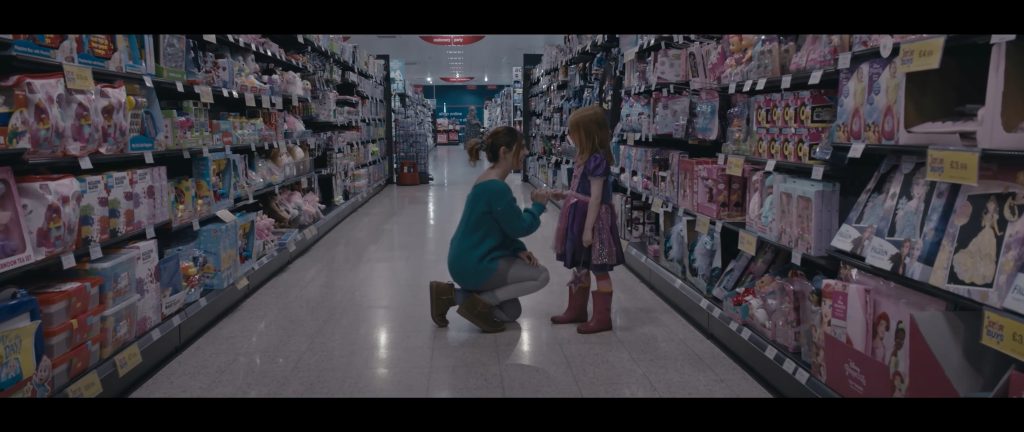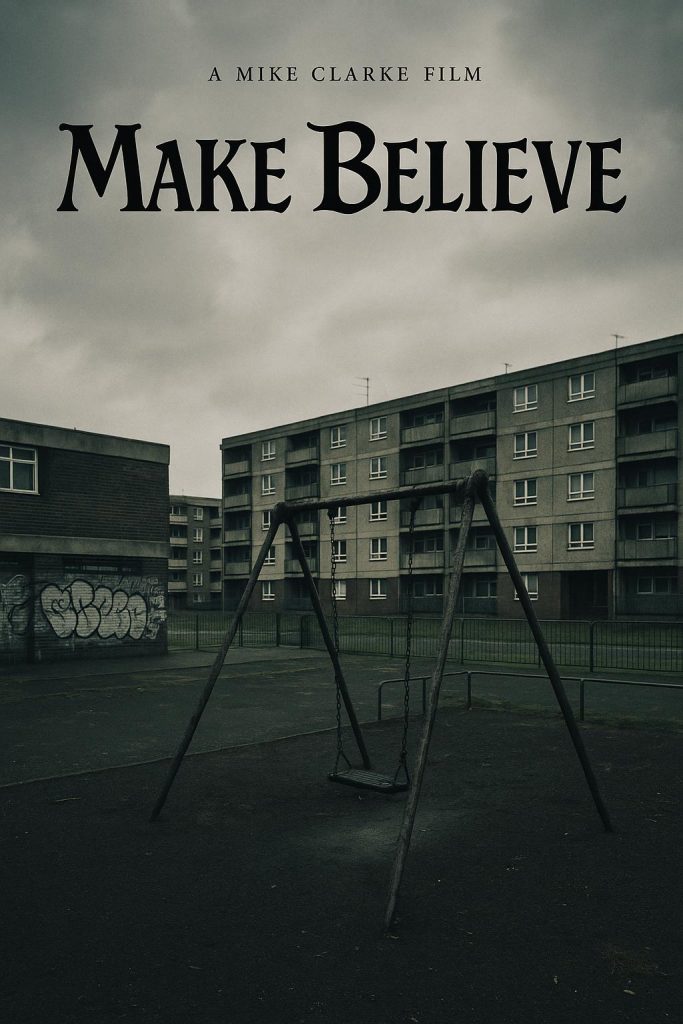A desperate single mother turns to her young daughter’s boundless imagination as a fragile escape from the unforgiving reality of their struggling life. Here is our review of multi award winning director Mike Clarke’s Make Believe.

There is a moment in Make Believe when a mother, worn down by poverty, fear, and exhaustion, tells her daughter to play Sleeping Beauty. “No matter what happens, no matter what you hear, you stay sleeping till mommy kisses you.” On the surface, it’s a tender game, a way of protecting a child from what no child should ever see. But underneath, it’s a heart-rending metaphor for the way imagination becomes both shield and prison for those trapped by circumstance.
Mike Clarke’s Make Believe is a short film of unusual power one that doesn’t lecture, but observes. It doesn’t wallow in misery, but insists on the humanity of its characters. And it doesn’t offer easy answers, because in the world it depicts, there aren’t any.
The story follows Shelly emotionally played by Sophia Leanne Kelly, a single mother scraping by while trying to raise her daughter, Daisy played by Anastasia Hesketh. From the opening moments when a bailiff bangs at the door and peers through the window we understand the precariousness of Shelly’s life. There’s no stability, only the constant threat of losing what little she has. And yet, the film is not about hopelessness. It’s about the fragile beauty of a mother-child bond, and how the spark of imagination can flicker even in the darkest places.
Clarke’s direction is intimate and unflinching. He shoots the interiors with a kind of claustrophobic realism: narrow hallways, dim kitchens, cramped spaces, supermarket aisles, where air feels scarce. But he also knows when to pause, when to let the music swell, when to give Daisy’s voice the purity of a fairy tale. These shifts between harsh realism and delicate fantasy create a rhythm that feels honest to the experience of poverty not unrelenting despair, but moments of escape that make survival possible.

Anastasia Hesketh is remarkable as Daisy. Child performances often tilt either toward precocious charm or flatness; Hesketh finds the quiet truth of a child who doesn’t fully understand her circumstances but feels them deeply. Her innocence isn’t saccharine, it’s stubborn, resilient, and heartbreaking. Sophia Leanne Kelly matches her beat for beat, capturing the duality of a woman hardened by necessity yet softened by love. The supporting cast rounds out the world with lived-in authenticity, never tipping into caricature.
What impresses the most is how the film resists exploitation. Clarke’s script, helped along with Iain Cash’s patient editing, allow us to sit with the characters, to hear the rhythm of their voices, to feel the weight of decisions no parent should have to make. Even when the film moves toward its darker turns, it never loses sight of Shelly’s dignity.
The title is both ironic and sincere. “Make believe” is the game Daisy plays when her mother can’t afford food, when cereal boxes become castles and hunger becomes a story. It’s also the game Shelly plays for herself, convincing her daughter and perhaps herself that things will be all right. The film suggests that imagination can’t solve structural poverty, but it can keep love alive in its midst. That is the memory that lingers the most.

By the time the credits roll, Make Believe has earned its emotional weight honestly. It doesn’t manipulate tears it draws them out by reflecting reality. In the tradition of British social realism, from Ken Loach, Mike Leigh to Andrea Arnold, Clarke finds poetry in the everyday struggle, and in doing so, he honours lives too often dismissed or unseen.
There are many films about poverty, but few with such empathy. Few that understand how a bedtime game can carry the force of myth. Make Believe reminds us that cinema’s greatest gift isn’t escape its recognition. And in Shelly and Daisy, we recognize both the pain of survival and the enduring power of love.
